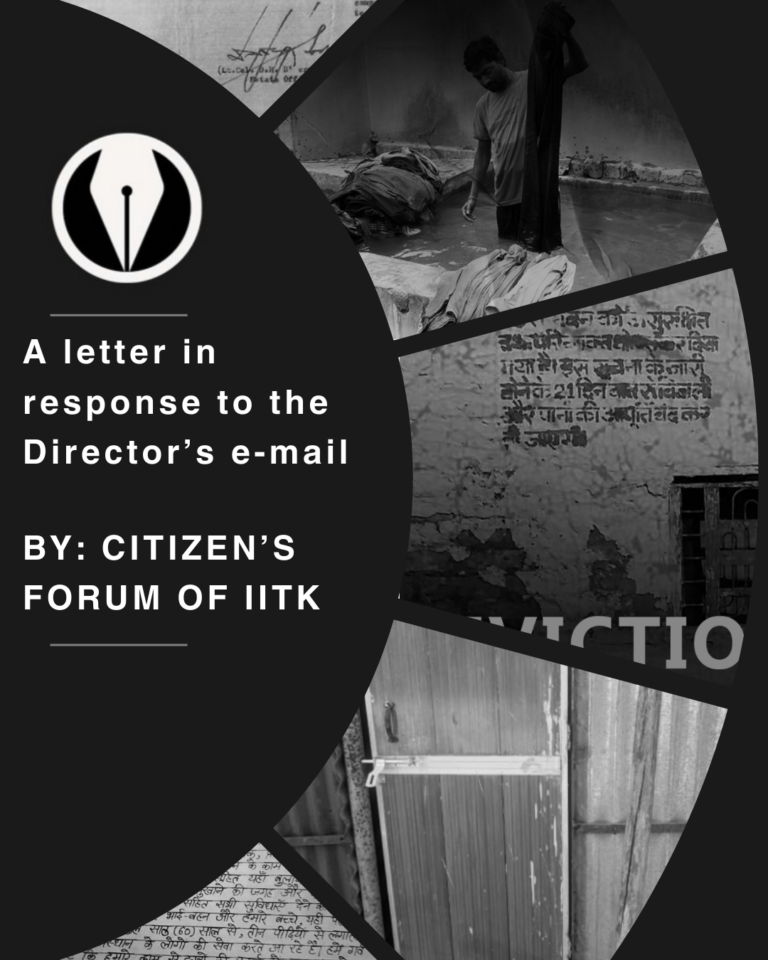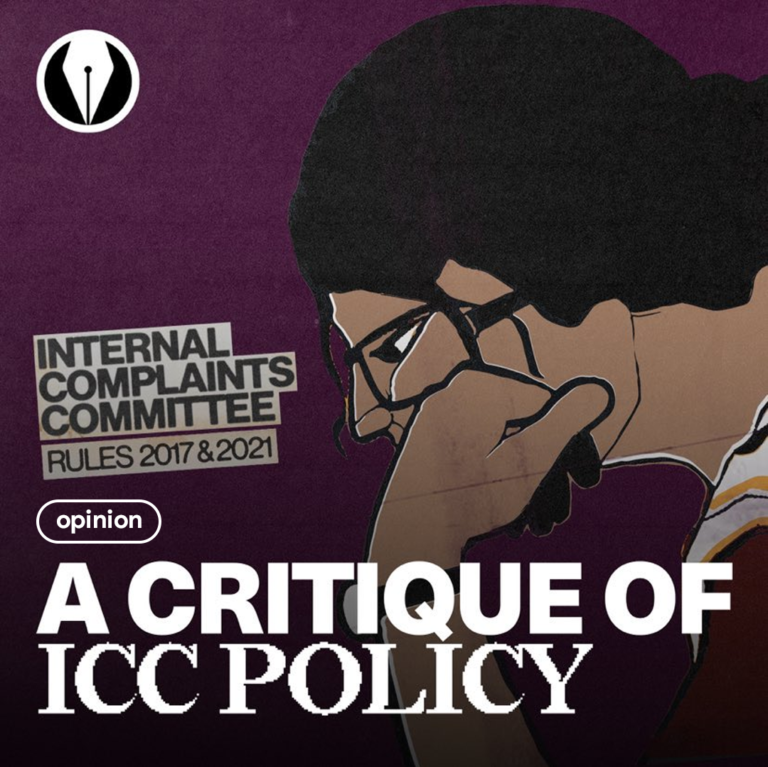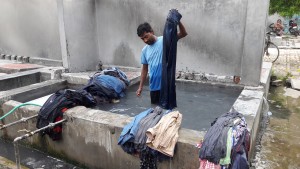IIT Kanpur is considered as one of the most flexible academic institutes in India and abroad with offerings such as double majors, minors and loads of electives. The Open Electives (OEs) are a crucial part of this freedom. They act as means to pursue inter-departmental courses which count towards the degree in one’s own major.
In theory, one can take any course that is offered at IITK as an OE of his/her choice but as with most unbelievable things, there are terms and conditions involved making OEs more of a fuss than a facility. Read through as Vox delves deeper into these terms and conditions applied over OEs to figure out whether OEs are really that open?
The first and foremost issue with the OE system lies in the scarcity of TAs and faculty members for a particular course. Most of our interviewees agreed upon the restraint due to a limited number of Teaching Assistants (TAs) in a department. Both Prof Vimal Kumar of Department of Economic Sciences and Prof. Devlina Chatterjee of Department of IME agreed that lack faculty members in the departments are a hindrance to increasing student intake in OE courses. Prof. Devlina added that in some courses she needs one to one interaction that is not possible otherwise.
This might be a worrying trend as the number of students has been increasing gradually since the turn of the decade or so while the number of faculty has remained almost constant, as claimed by the previous Chairperson, Students’ Senate, Mr Kunal Kapila. Further, up to 15% percent of the supernumerary seats will be added next year for female students as well, as per the recently passed MHRD policy and this might worsen the existing situation.
Prof Harish Karnick of the Department of Computer Science and Engineering gave his two cents on the topic from the perspective of a larger department. He pointed out that these departments bear a heavy load from institute core (IC) courses like ESC101 that run every semester and ask for a huge number of TAs. While he was indifferent towards the number of students in a class, he did bring out the problems faced in grading and monitoring a large class with a limited number of TAs.
While there might be a scarcity of faculty, IIT Kanpur does boast of a very healthy post-graduate to undergraduate ratio with an almost equal percentage at this point. This further raises the doubt as to why there exists a scarcity of TAs for many courses. Prof Neeraj Misra, the Dean of Academic Affairs (DOAA) shed light upon the matter by adding the fact that despite having many PG students on the campus, making everybody a tutor/TA remains a utopian situation. There is a proper selection procedure through which a Ph.D. or PG student goes before being given the responsibility. However, to help the case better, after a recent Senate proposal, TAs are now allowed to grade sheets unloading some burden off the Professors.
Moving forward and accepting that there can’t be unlimited seats in a course, the secondary issue pertains to the students themselves, that is, their attitude towards OEs. The general perception of the teaching community (at least our interviewees) towards students, especially UGs, is that of money-mindedness, which affects their willingness to enrol. Prof Vimal felt that many students just want non-technical courses for good placement opportunities rather than a genuine interest in the topic which leads to restriction of allotting courses to everyone who is interested. Prof Devlina also resents the “UG attitude” and feels the same is evident from low attendance statistics of UG students in the courses opposed to that of PGs and MBA students. She further added, “We are not here to give the B.Tech students an easier path to better jobs. IME department doesn’t exist for this reason, IME department exists to serve and cater the teaching and research needs of IME students. We give some courses to B.Tech students as a courtesy. You are not our department students. Every department has its loyalty to its own students first and then it has loyalty to rest of institute.”
As the demand for some courses is more than the others, professors then need to apply some metric they find suitable, which might not seem fair to all students. DOAA accepted the fact that every metric has its faults and for course allocation there has to be a criterion and instructions so as to fairly allocate a course. The decision though lies with the instructor, hence the filter is not common. He also felt that more open electives should be offered which have no or a minimum number of prerequisites so as to increase its reach to a larger number of students.
Prof. Rajiv Shekhar (former SUGC Chairperson) highlighted that CPI remains a common yardstick upon which students are tested upon and hence greatly limits the choices for an average student, though there are several deviations from this standard policy. Further, it came out that as an alternative to CPI sometimes professors randomly pick the students, while first-come-first-serve is always an open option. Some students reach out to faculty members for getting a particular course expressing their interest in that which is dealt in different ways by different professors. Prof Vimal Kumar believes that it is an asymmetrical decision for anyone to make as it is tough to make out who is genuinely interested and who is faking it. Hence in this situation, he prefers one who has done a verified project or an internship in that particular area stands. On the contrary, Prof. Devlina doesn’t give much heed to project work as she thinks that they can easily be approved.
“It would be better if Professors also state the policy that they’ll use to allocate open electives on Pingala as otherwise, one has to go to 4-5 course instructors to ensure you get that one OE, making pre-registration period a hectic time, even more so as it is very close to end-sems,” exclaimed Sirsendu Sarkar, a third-year undergrad.
Another major issue is the existence of prerequisites for almost every course, which renders courses inaccessible to students who are genuinely interested in the coursework. In theory, a prerequisite waiver can be obtained with the permission of the course instructor. However, as Prannay Khosla (Y15, CSE), narrates, “If you want to get prerequisites waived it wasn’t possible earlier. In my second year, the DoAA staff refused to cooperate even after the course instructor gave permission. However, once Pingala was launched, I was able to get prerequisites waived and the DoAA office didn’t intervene.” The same issue was reiterated by Robin Singh Rana, Y15, BS MTH. He adds, “Data Structures and Algorithms (ESO 207) is a compulsory ESO for my department which we need to do in our 5th semester as per our departmental template. Hence we were not given that course by course instructors earlier, neither in 3rd semester nor during summers, even though the departmental template is not binding. Due to this, I was not able to take up OEs of my choice from CSE department until my 6th semester. Though I have had done relevant certified online courses, instructors were unwilling to consider the same.” A major hurdle in being able to do OEs of interest is the problem of numerous time slot clashes. Prannay will not be able to register for two OEs of his interest (Commutative Algebra and Principles of Programming Languages) because he needs to complete his ESO credits and the courses clash with ESO slots. Clashes with basket DEs, departmental compulsory courses and HSS slots are almost invariably common woes faced by students during pre-registration.
Now we shall discuss the solutions that can possibly help or improve the present situation, which, the DOAA agrees, is not optimal yet. The first and obvious choice is flipped classroom. This not only eliminates the need for infrastructure that otherwise might pose problems but also frees up the instructor from taking lectures in the subsequent years hence freeing up the time to invest in correcting copies or making better assignments. Prof Vimal Kumar hinted that his department is looking into this as a viable option. Prof Karnick, on the contrary, felt that the time involved in making the material is excessive. Prof. Devlina seemed to agree to it’s potential but felt its effectiveness to be limited to only project-oriented courses.
Another solution as proposed by Prof. Devlina was that of a generic introductory course by the department with higher student intake, something similar to what is employed by the Department of Computer Science and Engineering in form of the course, Data Structures and Algorithms that admits in excess of 150 students for one semester in a year. The recent proposal passed in the Academic Senate to have merit-based undergraduate TAs will definitely help in increasing the number of TAs for popular courses. An innovative new solution to copy checking is posed by using tools like Gradescope, employed by Prof Indranil Saha in ESC101 and Prof. Purushottam Kar in CS771, both having in excess of 200 students. Gradescope helps in creating templates that can correct copies once uploaded to it by scanning or documents, hence making the process at least simpler than before.
Written by Rahul Gauriyar, Saksham Mittal and Ayush Agarwal





![[EDITORIAL] Is the institution failing somewhere?](https://voxiitk.com/wp-content/uploads/2026/01/1-2-768x960.png)





